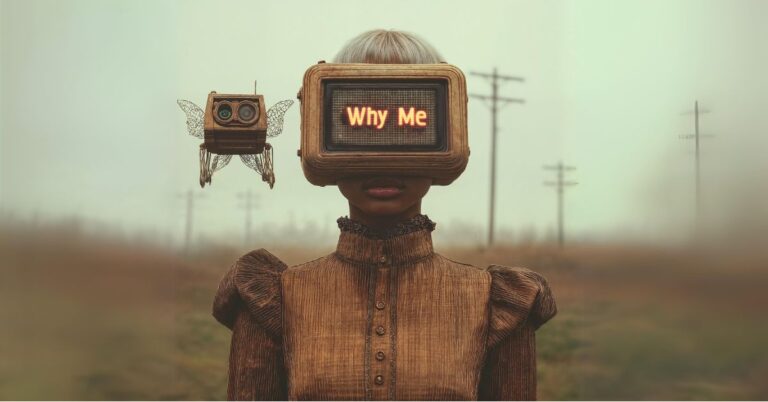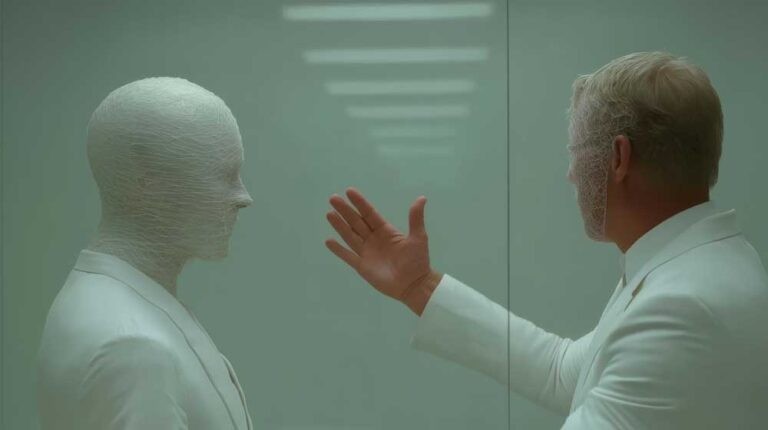
Living in the age of a mental health epidemic where many people are struggling to be happy, and as a result, they start to believe that true and unconditional happiness is impossible, and it is probably outright a wrong goal.
In this way, virtually every human being is looking for happiness in one form or another in their lives to a degree that Aristotle stated that happiness is actually the #1 goal in life.
However, we can see a contradiction, such as if happiness is the #1 goal in life, then why are so many people unhappy?
Faced with this dilemma, some people eventually give up on the pursuit of happiness, stating that happiness is impossible, and it is outright the wrong goal.
Then they start justifying their unhappiness, looking for other people who are also unhappy to confirm and justify their collective unhappiness, eventually finding bestselling books (or pieces of advice) like The Subtle Art of Not Giving a F, which states “F happiness,” and they happily join the “give-up” movement, learning to say things like:
– We can’t know happiness without unhappiness
– There are clear advantages to being negative (and therefore, we should embrace them).
– Happiness is impossible
– Happiness is the wrong goal, etc
However, the issue with happiness is that it is often too complex, poorly understood, and people are looking for happiness in all the wrong places. After all, we usually only consider happiness when we are unhappy, which is already too late as we are already in that situation, arguably because we didn’t know how to be happy in the first place.
Sure, there are always exceptions to the rule, such as things that are out of our control, for example, when we are faced with a structural issue rather than personal problems. Still, as one happiness author suggested, if something is outside our control, then why do we continue to obsess about it? I mean, yes, it is always recommended to be proactive towards our happiness than reactive, as giving up usually just doesn’t take us places.
However, the ultimate truth is that true and unconditional happiness is possible, and it is the subject of this website I call Optimal Happiness. No, it isn’t toxic positivity, and it isn’t delusional in any other way. In fact, it is rather healthy and presents a ton of advantages, such as virtually every part of life becoming better because we are happy, to a degree that I often call happiness a “competitive advantage.”
This above statement can and will be seen as ludicrous to some people, especially those who have been looking for happiness and failed to achieve it, which is why they would lean towards the idea that happiness is impossible, or it is an undesired goal simply because they don’t know how to be happy in the first place.
Yet, provided this new and undeniable truth that:
– True and unconditional happiness is possible for virtually every person alive
– There is a clear and universal formula that can be applicable to virtually everyone in the world
– Many people already live by this formula every day of their lives
How can we still live in denial stating that happiness is impossible and it is the wrong goal?
Yes, my point is that most people think that happiness is impossible and it is a wrong goal because they repeatedly tried and failed to be happy while not being given the right tools from the start. However, the formula for this high level of happiness, which I call Optimal Happiness, is the subject of this blog, book, and my coaching programs that you can find on this website.
Yes, happiness is still possible, but it will require you to take additional action, such as to commit to learn the Optimal Happiness program. In return, you become that much more likely to live the life you always wanted, desired, and knew you deserve to live, which is still possible.
To learn more, contact me for a free 30-minute happiness assessment.
Stay happy.
















4 thoughts on “Is Happiness Impossible? And Is It a Wrong Goal?”
Nicely articulated , making it feel relatable. Surely we should be happy but just being mindful :)
Happiness is somehow relevant, interesting, and relatable to everyone because deep down, it is very important to everyone. We may sometimes overlook this fact because we believe we need things that will make us happy, rather than valuing happiness in itself. For example, we might think we need a car to experience positive emotions, instead of recognizing the value of positive emotions on their own. I believe it is crucial to shift our thinking in order to truly grasp the importance and tools for achieving happiness.
Regarding mindfulness, it is indeed a valuable tool for happiness. However, I would encourage everyone to consider other factors that contribute to our happiness, as mindfulness alone may not be sufficient if not practiced correctly. Most people may require additional support to address various elements of happiness in order to achieve true happiness.
So true.
This took me sometime to realize. I’m glad you support this message :)